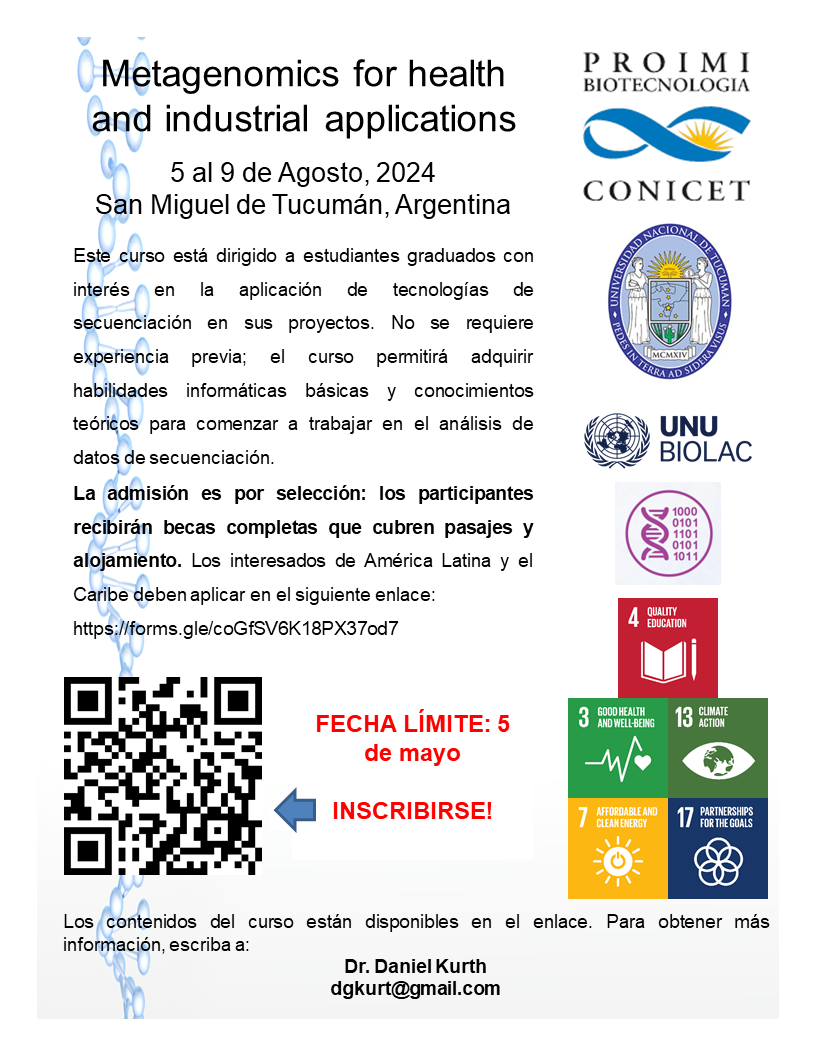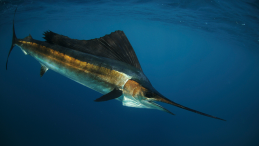Massive sequencing technologies have revolutionized microbial ecology, allowing access to in-depth knowledge of environmental samples' taxonomic and functional composition. This knowledge could be a starting point for diverse applications, but the massive data sets involved have a steep learning curve for generation and interpretation.
The course aims to cover cutting-edge microbes characterization and analysis methodologies under next-generation sequencing platforms, focusing on the basics of applications to human health and enzyme bioprospection. Students will develop basic bioinformatic skills to understand the steps from raw data to genomic information and to interpret the results in light of the selected applications.
This course will introduce metagenomics, applicable to human health and biotechnological processes. Technical lectures will feature essential content, including sample collection, DNA extraction, library preparations, standardization, and description of different sequencing technologies and strategies. Other lecturers will show the application of metagenomics to specific subjects (see below). A practical module will focus on acquiring bioinformatics skills directed to processing raw data, interpreting taxonomic and functional results, and searching genes with biotechnological interest.
This course is aimed at graduate students interested in applying sequencing technologies in their projects. Besides basic microbiology and molecular biology knowledge, no previous experience is required. The course will allow acquiring basic informatics skills and theoretical knowledge to start working on sequence data analysis. An outline of the contents is detailed below. The contents of the theoretical module will be oral presentations with a written evaluation on the final day.
Participation in the course will be entirely waived for selected students. The scholarship includes registration, travel to the course location, and lodging. Students are expected to bring their laptops for practical sessions.
Content summary:
1. Theoretical module:
Introductory lectures will describe the basis of sequence analysis, including:
• Sample collection and experiment design. DNA extraction methods and biases. Library preparation and standardization.
• Sequencing technologies and their impact on microbial ecology.
• Sequencing strategies: amplicons, metagenomics (Whole MetaGenome Shotgun Sequencing), metatranscriptomics (Whole MetaTranscriptome Shotgun Sequencing).
• Data processing: Curation, assembly, and annotation.
Other lectures will provide examples of different applications of metagenomics, such as:
• Biodiversity in extreme environments.
• Agro-industrial waste degradation.
• SARS-CoV-2 sequencing.
• Human microbiome in health and disease
• Bee microbiomes and their influence on colonies' health and production
• Enzyme bioprospection.
2. Practical module:
• Basic informatics concepts, including working locally or on the cloud. Command line using the Linux operating system.
• Analyzing an amplicon dataset from raw data from microbial communities using QIIME2. All basic steps will be covered, including OTU/ASV calls, taxonomic assignment, alpha and beta diversity analysis, and statistical methods for evaluating results. Advanced techniques for specific applications will also be covered, including multivariate methods for analyzing microbial communities, identification of biomarkers, and inference of functions with databases.
• Analysis of shotgun datasets with an assembly-based approach. Microbial Assembled Genomes (MAGs). Gene annotation.
• Alternative online resources for amplicon and shotgun sequence analysis.
• Basic tools in genomic analysis for annotation will be applied to study glycoside hydrolases for agro-industrial waste degradation. The CAZy database will be used to analyze selected enzymes' diversity, structure, and function.
Application procedure
Complete this form to apply.
For more information, send your questions to dgkurt@gmail.com.
Deadline: May 5th, 2024.



